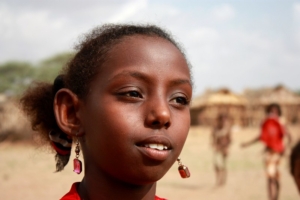Using the Education System to Support Mental Health in Eritrea
 In the East African country of Eritrea, the shadows of mental health challenges often go unnoticed. This article highlights the experiences of Eritreans, their access to mental health services, the importance of education and its effect on the country’s economy.
In the East African country of Eritrea, the shadows of mental health challenges often go unnoticed. This article highlights the experiences of Eritreans, their access to mental health services, the importance of education and its effect on the country’s economy.
Mental health includes an individual’s emotional, psychological and social well-being. It affects how an individual thinks, feels and acts. It can also affect how we handle stress, make health decisions and relate to others. It can affect a person’s physical health. For example, depression increases the risk of diabetes, heart disease and stroke.
Similarly, chronic conditions can increase the risk of mental illness. Mental health disorders refer to a wide range of mental health conditions that affect mood, thinking and behavior. A mental health concern becomes a mental health illness when it affects your ability to function, and symptoms become frequent stressors in daily life. In most cases, treatment can be either medication, psychotherapy, or a combination of the two.
Background
In 2022, the people of Eritrea continued to experience the impact of weak socioeconomic conditions, low food production, a decline in family remittances due to economic sanctions and a depletion of groundwater levels, affecting access to potable water. Additionally, mental health problems are rising in Eritrea, with mental illnesses among the leading causes of disability, comorbidity and mortality. In 2015, there were an estimated 219,549 cases of depressive disorders (4.3% of the population) and 156,599 cases of anxiety disorders (3.1% of the population) with other common conditions, including schizophrenia, neuroticism, stress and mood disorders, epilepsy and dementia. Approximately 30-40,000 children are estimated to have intellectual disabilities, including autism spectrum disorder, childhood intellectual disability and childhood neurological origin.
Regarding the treatment and services for mental health patients, Eritrea has a small network of mental health facilities, the main being Saint Mary’s Neuro-Psychiatric Hospital, located in Asmara. This provides inpatient care and long-stay residential services for individuals with mental disorders. A second community residential care facility serves those with relatively stable and chronic mental disorders not requiring intensive medical interventions.
Eritrea also has a long-standing commitment to social justice, accessibility, and the right to health care, with a range of medicines, including antipsychotics, antidepressants and mood stabilizers, available free of charge. However, despite being free of charge, many children and adolescents drop out of school due to mental health issues.
Mental Health Support in the Education System
The introduction of mental health and psychosocial support into the education system could aid the stress of mental illness in Eritrea and help keep children in school. In 2022, the Eritrean Government reported that around 300,000 children and adolescents aged 6-17 were out of school. During humanitarian emergencies, child mental health can be affected in several ways, including exacerbating existing mental health issues, reducing educational participation and worsening educational outcomes. As a result, mental health issues combined with low academic attainment can result in low lifetime earnings. This can not only affect individuals but can also affect Eritrea’s economy.
UNICEF completed a global cost-benefit analysis and found that the impact of failing to address the mental health and psychosocial support needs of 10-17-year-old children affected by humanitarian emergencies would result in the equivalent loss of a global US$203 billion loss of potential lifetime earnings.
In Eritrea, there is a high urban-rural distribution disparity of mental health workers and services, with the majority located within urban areas. Patients in rural areas have reduced accessibility to services. Spreading mental health work throughout schools in both rural and urban areas could help to reduce this disparity and align with Eritrea’s long-standing commitment to social justice, accessibility and the right to health care. Introducing mental health support into the education system could inspire a new generation of psychiatrists and mental health support workers in Eritrea.
Currently, the country only has one psychiatrist. Comparing this number with the United Kingdom, which has 13,170 psychiatrists per 67.33 million people, Eritrea should have around 708 psychiatrists for its population of 3.62 million. Eritrea does have an initiative to send doctors and medical professionals abroad to train as psychiatrists, which should help to grow the country’s mental health support network.
In January 2021, the Eritrean Minister of Health, Honorable Amina Nurhussien, launched a four-year health sector strategic development plan for 2022-2026. This development plan would include essential tools to help guide the country towards achieving Universal Health Coverage (UHC). This plan should allow all who need it to access mental health support and treatment. Eritrea has made remarkable progress in health care since 1991, achieving the Millennium Development Goals (MDG) health care targets, and shows great promise in achieving Sustainable Development Goal (SDG) 3 by 2030.
Final Thoughts
In conclusion, Eritrea is making significant efforts towards improving mental health support. However, introducing it into the education system could enhance it further. Allowing children and young adults to learn about mental health in a school setting could provide them with an interest in a career in mental health support and provide Eritrea with a new generation of psychiatrists, psychologists and mental health support workers.
– Charlotte Campion
Photo: Flickr
